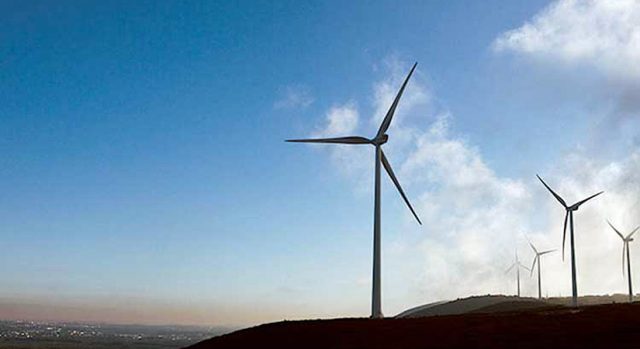UNDP extends Philippine renewable energy program
By Angelica Y. Yang – May 11, 2021 | 8:26 pm
from Business World

THE United Nations Development Programme (UNDP) has extended the Development for Renewable Energy Applications Mainstreaming and Market Sustainability (DREAMS) program to January 2023, the Department of Energy (DoE) said.
“Energy Undersecretary Emmanuel P. Juaneza informed the Secretary (Alfonso G. Cusi) that the UNDP has extended the DREAMS Project’s duration from July 2021 to January 2023,” the energy department said in a statement last week, referring to a virtual event attended by DoE officials and UNDP Resident Representative Selva Ramachandran.
The DoE is currently implementing the project through its Renewable Energy Management Bureau (REMB). DREAMS have experienced delays due to the pandemic.
“The project was (supposed) to end on July 2022… however, due to the 2020 health pandemic that affected all activities, an additional six-month extension (was) added,” DoE-REMB Director Mylene C. Capongcol told BusinessWorld in an e-mail Monday. She is also the National Project Director of the DREAMS.
Ms. Capongcol said DREAMS provides technical assistance to the DoE in drafting and implementing policies to leverage renewable energy (RE) investment and remove barriers to the industry’s growth.
Other major projects under DREAMS include a Support Facility for RE (SF4RE) which aims to fund services and goods to help institutions implement RE projects in their communities; the Local Renewable Energy Planning program which is working with at least 11 municipalities to integrate RE policies and programs in their agenda; and the Philippine Renewable Energy Market System which will be used to track compliance with the Renewable Portfolio Standards (RPS) program, she added.
The RPS program requires distribution utilities to tap qualified RE facilities for a portion of their supply needs.
“DREAMS is also assisting the REMB, in the preparation of the NREP (National Renewable Energy Program) 2020-2040. NREP has defined the RE targets and strategies to achieve overall 35% RE in the energy mix,” Ms. Capongcol added.
Asked how the extension of the DREAMS will help improve the RE market, she said the project aims to complete at least a dozen RE projects under SF4RE, implement support activities under NREP, and continue technical support for the RE market.
She said some $5.2 million has been earmarked for all projects under DREAMS, with $1 million going to SF4RE. She added that the Global Environment Facility is the main source of the $5.2-million grant, adding that the DoE has also committed another $2.2 million in counterpart funds covering management, technical support and office.
According to a midterm review of the program in June 2020, DREAMS is meant to address issues surrounding RE development, focusing on regulatory approvals for RE projects at the local and national levels.
“The objective of the DREAMS project is to reduce GHG (greenhouse gas) emissions through promotion and facilitation of the commercialization of RE markets. This is to be done through the removal of barriers to increase investments in RE-based power generation projects,” it said.


